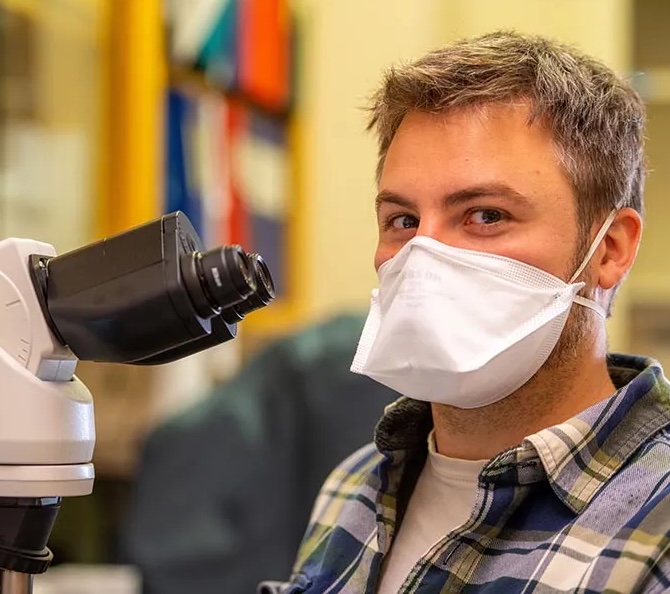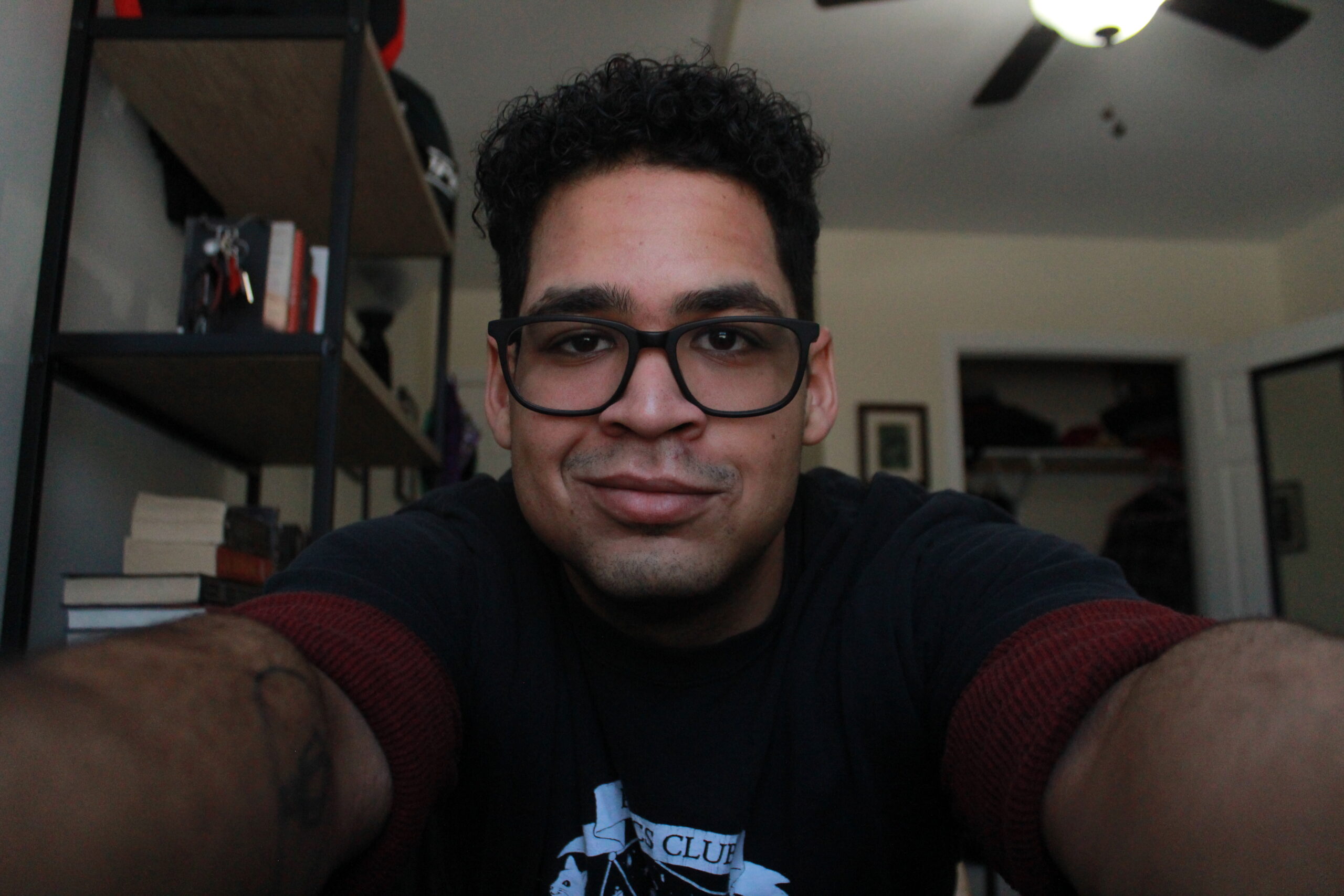Why We’re Forming a Union

Em Sowles
“Having no dental or vision insurance as a part of health insurance has put me in a position where I have to choose between ignoring my health or paying premium costs out of pocket to care for necessary health care. And the cost of non-insured procedures hits harder since I do not make much money as a grad student.”

Alessandro Mereghetti
“Housing prices in Maine have been skyrocketing over the last few years, and the University has not increased stipends for grad workers accordingly nor provided affordable housing options in adequate numbers. Having access to secure, affordable housing nearby the workplace would benefit all the graduate workers, especially international ones.”

Andrea Tirrell
“Despite the fact that I love my research and community here at UMaine, it is unsustainable for me to live with such low wages, inconsistent or poor healthcare, and no seat at the decision making table. The University repeatedly makes unilateral decisions that negatively impact grad students, which is harming not only our research and learning experiences, but our lives. I’m over it! We need a collective say now.”

Vendy Hazukova
“I rely on the university health insurance not only to cover me, but also my husband who requires life-saving blood-thinner medication. Despite always paying for the UMaine insurance on time (the deadline is before we receive our September paychecks!), we have experienced a lapse in coverage every single year, some years lasting for 3-4 months. We need quality, reliable health insurance in our graduate worker stipend packages.”

Eric Brown
“I am 28. I have friends and colleagues who have families, are older, and who have lived entire lives before their current tenure at UMaine. I find it quite insulting to be treated like a high schooler working during his summer break (note that all workers deserve dignity and adequate compensation!!!). Grad workers are not children seeking a weekend allowance! We are parents, we have illnesses, we have this strange biological imperative to consume food, we have lives to live. Let’s live them dignified, shall we?”

Amanda Gavin
“Given how low our wages are, in order to afford being a graduate worker at the University of Maine, we either need to make major sacrifices like not going to the doctor or seeking mental health services, or go into debt, or have access to financial resources through a spouse or family. All of this makes being a graduate student widely inaccessible. If the University cares at all about diversity and accessibility, like they say they do, they’ll recognize that paying graduate students a living wage is the only way to recruit and maintain a diverse pool of graduate students.”

Harrison Goldspiel
“Graduate workers are highly skilled employees. We teach classes. We manage laboratories. We staff offices and facilities. We coordinate research programs. We secure grants. We speak to the press. We pursue novel ideas. We publish cutting-edge science. Meanwhile, most of us live month-to-month, accruing debt, with little to speak of savings along the way. Meanwhile, most of us rely on food pantries, government aid programs, friends, and family to survive. Meanwhile, we have inadequate, incomplete health care. Meanwhile, we have few legitimate resources for resolving unhealthy power dynamics at work. Meanwhile, the President of the University earns 1400% more than doctoral students, not including housing and myriad other benefits. We are people in our twenties, thirties, forties, and beyond. The University operates at the mercy of its graduate student workers while we live—we live—at the mercy of the University. This is not sustainable.”

Anthony Piña
“My pay has been tremendously inconsistent. In my four years here, there have been more semesters that my pay has been incorrect than correct. Whether it be paperwork done incorrectly by my department, or in one case paperwork sitting on someone’s desk in the payroll department for months, the issue of getting paid the correct amount has been persistent, and at times distressing as I don’t usually know there is an issue until I’ve received the incorrect amount of money at the end of the month.”

Frank Sternberg
“I have been living with type 1 diabetes for over 10 years and use an insulin pump to manage my blood glucose. When I turned 26 and lost access to my parents’ health insurance, I researched enrolling in alternative options, including the graduate student plan and coverage offered through the state exchange. Not only did the University health insurance not cover the costs associated with my insulin pump, but the state coverage was cheaper – actually, my entire premium was subsidized because of how little UMaine pays M.S. students!”

Anonymous
“I am a parent of three young children. All of them have been born during my time as a PhD student. Not having consistent health insurance providers, having poor coverage and having a non-livable stipend has meant that my partner and I have had to make huge sacrifices to start and provide for our family. There is absolutely no support for graduate students with children, including no formal parental leave when your baby is born (you have to take a leave of absence which in most cases means losing your funding) and no support with childcare costs. Though childcare is moderately subsidized through the University the enrollment cost for a single child is nearly half of the average PhD student yearly stipend. The waitlist to get a child into childcare is close to a year (or more!) meaning you have to get on the waitlist before your future child is even conceived if you want to have a chance at getting them into childcare soon after they are born, which is necessary because we are not provided with parental leave. This burden largely falls on women (though not exclusively) and presents a major barrier for pursuing advanced degrees. Grad students are humans with families to provide for, rent/mortgages, debt, heat bills, etc. We should be compensated appropriately for the work we do to advance the R1 University mission.”

Abigayl Novak
“As a former graduate student that struggled to communicate with my advisors, I believe it is essential to have a good relationship with your advisor. It is all too often that grad students are taken advantage of. Because of the current structure of academia and the power dynamics that exist in mentor-mentee relationships, grads do not have the ability to advocate for themselves to their superiors. And when we do raise our voices, we don’t have the protections to ensure that we will be able to speak freely and honestly.
Grad students at UMaine contribute critical labor to this university, which allows it function. We teach, perform research, and take on many other roles for the university. It is unacceptable for our university to allow our PIs to continue to treat us with disrespect while exploiting our labor.”

Sohrab Boldaji
“The University of Maine is built on the backs of many different workers, one of those groups being graduate workers. As graduate workers, we are an integral part to the Univsersity’s modus operandi through the different roles that we fill, yet the University views us as workers who they must not provide adequate benefits to. In my current rental situation I am rent burdened and excruciatingly close to being severely rent burdened (over 50% of my income going to rent), even though my housing is through the University. Myself and all other workers should not have to be in this situation, we have the right to be able to not only afford our necessities, but to be able to save on top of that.
The road of academia is paved with obstruction after obstruction to those who do not come from privileged households and by not allowing graduate workers the benefits that they need to survive, the University is attempting to starve out of academia those who do not have friends and families who are able to take on the financial burden that the University refuses to.”

Anonymous
“I love being a Teaching Assistant and becoming a professor is my end goal. There is nothing more that I love to do than teach eager college students. I employ various interactive and creative methods of teaching to help students learn. I won an award last year from the sports program for my teaching, but this year when nominated for a faculty award, I was told I was ineligible to win because I am a graduate student. It felt like a huge slap in the face after making such a difference in many student’s lives. If the university really values the teaching backbone of their campus (its graduate students), this should NOT be happening. Not only do I feel sorry that students are nominating me and not having their voices heard, but UMaine also needs to actually prove they care and support graduate students with action, not just words.”

